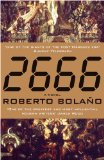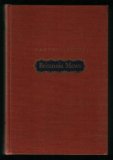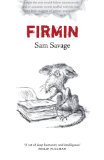Steph and Claire are hosting a read-along for the highly acclaimed book, 2666, by Chilean author Roberto Bolaño. The novel is 900 pages long, and divided into 5 parts. We are reading one part a month, for the next five months.
Here are my thoughts on Part 1: The Part About the Critics, pp. 1-160
Part 1 introduces us to four academics who specialise in the German author Archimboldi. Archimboldi has disappeared, and the academics are keen to discover his whereabouts. They travel to various literary conferences to discuss his work, and hope to find potential clues to his location. There is also a strange love triangle which develops between three of the academics. Not much happens in this section, but each of the characters is introduced vividly. Part 1 doesn’t really work as a book in its own right, but is a good beginning to what will hopefully be a well developed plot.
I found the formality of the book strange to begin with. Perhaps it is just the British culture, but it was really weird for me to read all the characters being referred to by their last names. I got used to it after a while, but then some characters started to be introduced by their first names. Does anyone know why this is?
Sometimes the book went into too much detail:
All four were put up at the same hotel. Morini and Norton were on the third floor, in rooms 305 and 311, respectively. Espinoza was on the fifth floor, in room 509. And Pelletier was on the sixth floor, in room 602.
I felt like it was waffling a bit, and adding too much unnecessary information. I’m sure the book could be reduced down to half its size without losing any crucial points. Does anyone else feel it would benefit from some word pruning?
The plot was a bit unbelievable in places. The scene with the taxi driver was a bit far fetched for me. It is quite normal for someone to say that:
….London was such a labyrinth, he really had lost his bearings.
The cabbie isn’t quoting Borges in saying this, it is a phrase in common usage. I certainly didn’t know that this phrase originated from Borges, and even if the taxi driver was aware of this fact I’m not sure why it resulted in him being severly beaten. It was all a bit odd to me. Did anyone else understand why this section was in the book?
The writing was reminiscent of Robertson Davies’ The Rebel Angels, although this maybe just because both were set in the world of academia. Does anyone else see a similarity between these two books?
I think it has the potential to be a really good book, and look forward to reading the next four sections, but I am really pleased that we are reading the book over several months, as I think the density of the text would really put me off completing this book in one go, and I would probably have been tempted to give up.
Overall, part 1 was quite average, but has the potential to be the start of a really good book.
![]()
What did you think of part 1?
Are you enjoying the read-along?
I look forward to hearing your thoughts on this massive book!



















